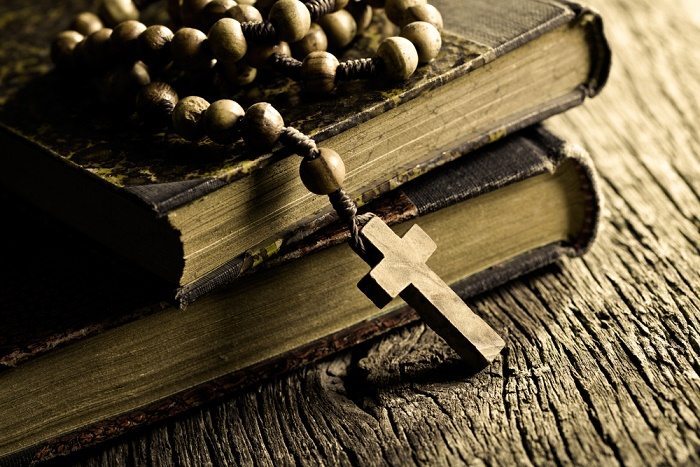Catholic Bishops Take Divergent Public Stances on ‘Personhood’ Measures
Catholic bishops in Colorado declared a "neutral stance" on this year's Colorado's personhood amendment, while bishops in North Dakota urged voters to approve a "personhood" measure its November's ballot. Both were defeated on Election Day.

The day after North Dakota voters overwhelmingly defeated a much-publicized “personhood” measure on the November ballot, the Bismark Diocese, led by North Dakota Bishop David Kagan, issued a statement expressing optimism that “society will, one day, value and protect life decisions at every level,” but disappointment that the measure “failed at the polls.”
Colorado’s Catholic bishops, on the other hand, were silent after a “personhood” amendment was defeated in their state. They’d publicly taken what they called a “neutral stance” in the weeks before Election Day, like they had on Colorado’s “personhood” amendments in 2008 and 2010.
Kagan’s Diocese in North Dakota worked hard this year to pass Measure 1, distributing campaign literature, homily notes, and a DVD to all parishes, according an October 11 Bismark Tribune article, which quoted Tara Brooke, coordinator of the Diocese of Bismarck’s Respect Life ministry.
Another North Dakota Bishop. Rev. John T. Folda, campaigned for Measure 1, saying in a North Dakota Campaign for Life YouTube video that Measure 1’s language is “remarkably similar to the stated beliefs and teachings of the Church.”
“Don’t be afraid to stand up for life in a public way,” Folda says at the end of the video. “Go to NDChooseLife.com and share the link to the video you just saw. Be a witness to the truth about Measure 1. I hope you’ll join me in voting yes for measure 1 this fall, so that North Dakota might continue to move toward a culture of life.”
Colorado’s bishops articulated their position on “personhood” amendments in 2008 when activists first placed the measure on the ballot.
At the time, the bishops stated their support of the amendment’s goal but worried that its passage could lead the U.S. Supreme Court to “actively reaffirm the mistaken jurisprudence of Roe.”
“While the Church respects those promoting this personhood amendment, the Catholic Bishops of Colorado decline to support its passage because it does not provide a realistic opportunity for ending or even reducing abortions in Colorado,” read the Colorado bishops’ statement.
Asked by Rewire for her analysis as to why bishops in Colorado and North Dakota had different positions on “personhood,” Sara Hutchinson Ratcliffe, director of domestic programs at Catholics for Choice, said Colorado’s bishops gave their tacit support for the Amendment 67 in Colorado, allowing local parishes to campaign for its passage.
“The bottom line is less that they had a different position on personhood than a different tactic,” said Ratcliffe, whose work opposing Amendment 67 was denounced by Colorado’s bishops.
“North Dakota is a much smaller and less diverse population,” said Ratcliffe, pointing out that the measures in Colorado and North Dakota were presented differently. “There are different constituencies in the two states. It’s about the reality of the electorate and the voting power the conference.”
“We know that the history of Catholic teaching has never declared when personhood begins and that the disagreements across the centuries have something to do with why bishiops won’t come out for it,” Ratcliffe said. “The power of the bishops is an illusion. For us, regardless of whether the bishops are pushing a personhood amendment from the front lines or behind the scenes, Catholics are not in agreement with the bishops and vote against it.”
“We considered it a life measure as opposed to personhood,” said Sonia Mullally, communications director of the Bismark Diocese, when asked why North Dakota bishops spoke out on the measure. “As Catholics we’re called to protect the sanctity of life at every level. To protect the laws that were already on the books, that’s what compelled our bishops to comment.”
“This measure protected not only ‘pro-life’ state laws, but moving forward too, there are bound to be more challenges,” Mullally said. “This tried to provide a baseline as more challenges come to life issues in North Dakota.”
The Colorado Catholic Conference, which represents Colorado’s three bishops, did not return an email seeking comment.
CORRECTION: A previous version of this article incorrectly stated that John Folda campaigned against Measure 1. In fact, he supported passage of the measure. We regret the error.

